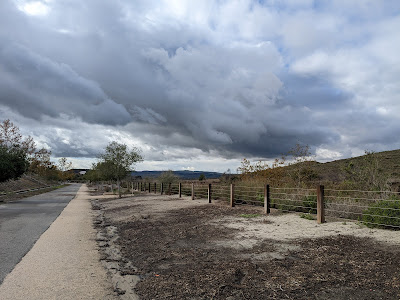Revolutionary Road and Wind Chill
Before my trip to Omaha at Christmas, I gathered internet wisdom on how to dress for cold weather runs. I packed vests and gloves and long layers and wool socks. I told all my Californian friends I was off to brave winter-proper.
My family and I landed in Nebraska a day before the storms arrived. I managed to sneak in a single run before the news blasted warnings about staying inside. A couple of miles into my run, the wind rose and the temperature dropped and the ground slicked over in thin ice. I gave up and took slow, slippery steps back to our rental house.
That was my last time outside, barring gloved fumbles with the car seat straps, for a week. Windchill in the negative-thirties kept us all housebound. Being inside for days in a row left me in a strange daze, afloat in a soup of catatonia and panic.
This separation from a sense of corporeality primed me to appreciate Revolutionary Road. Richard Yates' characters, filled with desire to connect, cannot reach each other through a veil of atmospheric noise. They stretch into the space and find nothing but cold.
*Spoilers Follow*
The book follows April and Frank Wheeler as they navigate their contempt for, and dependence on, middle class security. The Wheelers imagine themselves apart from their suburban lifestyle, like tourists or prisoners. Fancying themselves too avant garde, too radical, to fit in with their neighbors, they wrap themselves in a protective layer of disdain to avoid the potential of being proven wrong.
Midway through the book we learn that the two met young and hungry for adventure. When their professed ideals are threatened by an unplanned pregnancy, April is eager to terminate. She has no maternal ambitions and burns hot for movement. Her attraction to Frank is based in large part on his interest in travel and his distaste for 1950s white middle class American "society." To her dismay, Frank convinces her to keep the baby. We find her years later, blindsided and angry, with a sweet house in the suburbs, two kids, a lawn, and friends who she can barely tolerate.
Finally, April has enough. She convinces Frank they should move to Europe. She can be the breadwinner and he can pursue any of the number of enterprises he complains about being unable to pursue, what with the demands of bread-winning. Frank agrees but never quite settles into the idea. He grasps at any distraction from the plan he can imagine.
When another unplanned pregnancy occurs, the Europe move is derailed. Frank is relieved and April is devastated. But as much as Frank is all talk, April is all action. Knowing the risks, she terminates her pregnancy in the family kitchen. She dies of blood loss as a result.
The book ends in tragedy, but the reader is saved from having to feel it. Yates' tone is sardonic and distant enough that the pain is understood more than felt. The Wheelers, saved from caring, are also hard to care for.
There wasn't much snow during the storm in Omaha, but the wind made up for it. For days, the world was far off, hidden in an opaque atmosphere. I knew the gloom outside the windows was populated with countless lovely things that, shrouded as we were, I had no thoughts of reaching for.
I borrowed this book from my library via Libby. Read by Mark Bramhall, it's 11 hours and 24 minutes long.



Comments
Post a Comment